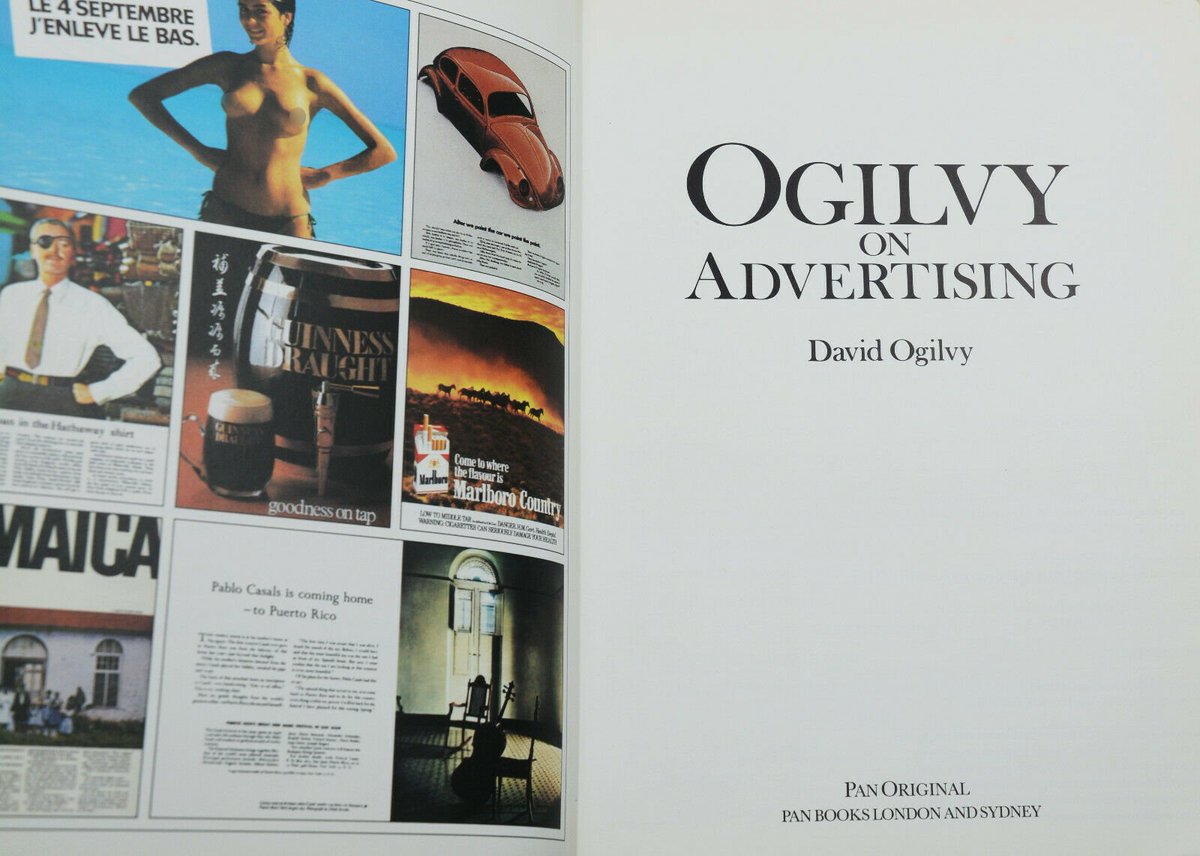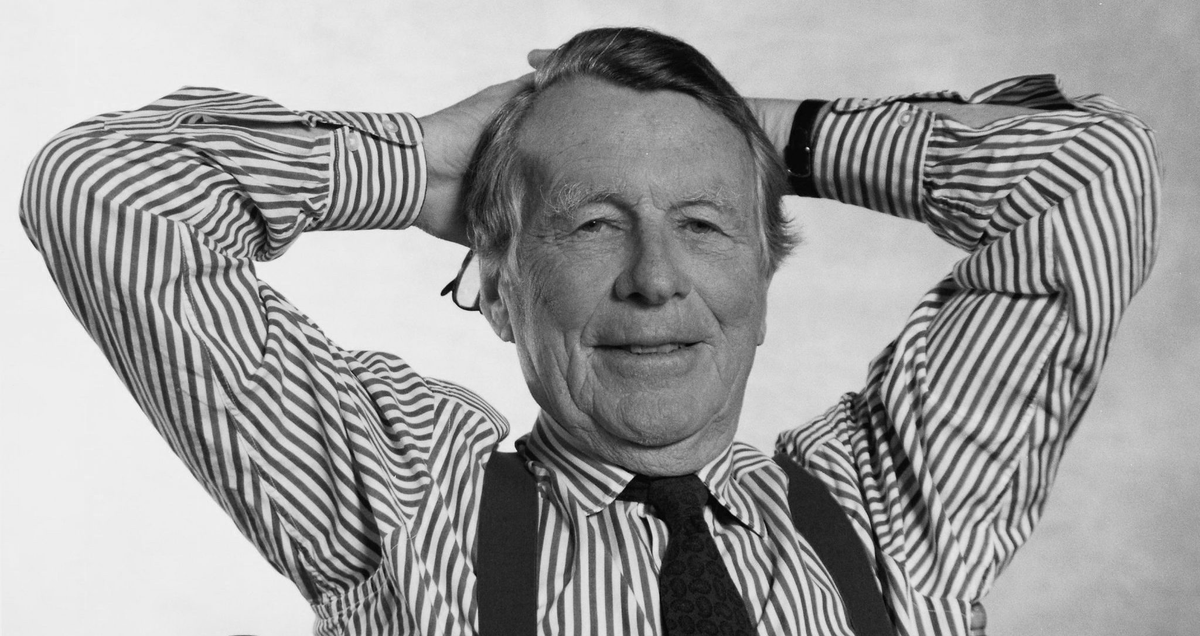“Ogilvy on Advertising” is one of the most influential advertising books ever. Below is a thread with 20 of the most interesting ideas from the book.
The book was first published in 1983. Ogilvy was already a legend in the industry and had already retired from his role as chairman of Ogilvy & Mather. The book captures most of the wisdom he used during his career to produce exceptional adverts.
1) "I don& #39;t regard advertising as art, but as a medium of information. When I write an ad, I don’t want you to find it creative. I want you to buy the product. When Aeschines spoke, they said ‘How well he speaks’. When Demosthenes spoke, they said, ‘Let us march against Philip’."
2) "Do your homework. When I got the Rolls-Royce account, I spent three weeks reading about the car and came across that ‘at sixty miles an hour, the loudest noise comes from the electric clock’ This became the headline, and it was followed by factual copy about the product."
3) "Consider how you want to position your product. Think ‘what the product does, and who is it for’. I could have positioned Dove as a detergent bar for men with dirty hands, but chose to position it as a toilet bar for women with dry skin. This is still working 25 years later."
4) "Every advert is a contribution to the brand image. Your advertisement should consistently project the same image, year after year. This is difficult to achieve, bc there are forces at work to change it, like a new agency or a new Marketing Director who wants to make a mark."
5) "Unless your advert contains a big idea, it will pass like a ship in the night. I doubt if more than one campaign in a 100 contains a big idea. I am supposed to be one of the most fertile inventors of big ideas, but in my career as a copywriter I have not had more than 20."
6) "Big ideas come from the unconscious. But your unconscious has to be well informed, or your idea will be irrelevant."
7) "No campaign idea is big unless it will work for thirty years."
8) "If you think the product is too dull, I have news for you: there are no dull products, only dull writers. Every time I have written a bad campaign, it has been because the product did not interest me."
9) "Most campaigns are too complicated. They reflect a long list of objectives, and try to reconcile the divergent views of too many executives. By attempting to cover too many things, they achieve nothing."
10) "What is a good ad? One which pleases you because of style or an ad which sells the most? They are seldom the same. You forget to ask yourself whether your favourite ads would make you want to buy the product."
11) "Why should clients be expected to bet millions of dollars on your intuition? The wilful refusal to learn the rudiments of the craft is all too common in our industry. I cannot think of any other profession which gets by on such a small corpus of knowledge."
12) "Set yourself to be the best-informed person on the account you work on. If it is a gasoline account, read books on oil geology and the production of petro products. Read trade journals. At the end of your first year, you will know more about the oil business than your boss."
13) "Always tell your client what you would do if you were in his shoes, but don’t grudge him the prerogative of deciding what advertising to run. It is his product, his money, and ultimately his responsibility."
14) "On the average, five times as many people read the headlines as read the body copy. Unless your headline sells your product, you have wasted 90% of your money."
15) "Do not address your readers as though they were gathered together in a stadium. When people read your copy, they are alone. Pretend you are writing each of them a letter on behalf of your client."
16) "Most copywriters believe that markdowns and special offers are boring, but consumers don’t think so. They are above average in recall."
17) "Advertising suffers from sporadic epidemics of Artdirectoritis. The afflicted with this disease speak as if the copy is a mere design element. They extol the importance of movement, balance and other mysterious design principles. I tell them KISS - Keep It Simple, Stupid."
18) Brand identification is important in TV advertisements. "Research has demonstrated that a shocking percentage of viewers remember your commercial, but forget the name of your product. All too often they attribute your commercial to a competing brand."
19) You have only 30 seconds in TV adverts. If you grab attention in the first frame with a visual surprise, you stand a better chance of holding the viewer. "When you advertise fire-extinguishers, open with the fire."
20) "If you will take my advice, don’t get a job in advertising unless it interests you more than anything in the world. The pay is good (but don’t expect all of the money in the world)... There are easier ways of getting richer."
Finally, here’s a link to Ogilvy’s interview on the David Letterman show in the 80s promoting the launch of the copy. Really interesting! https://youtu.be/IHkhcoEkpAc ">https://youtu.be/IHkhcoEkp...

 Read on Twitter
Read on Twitter



